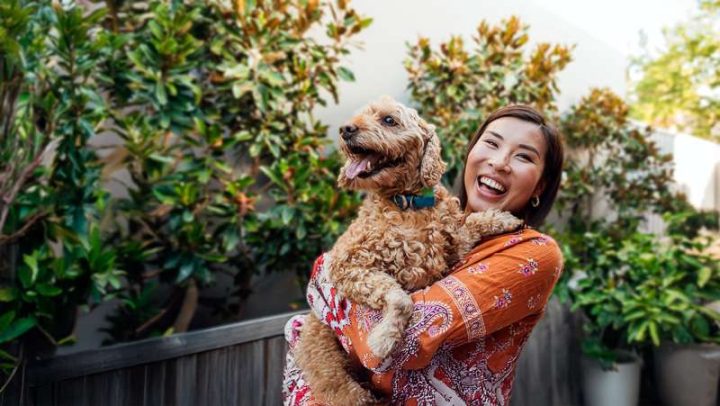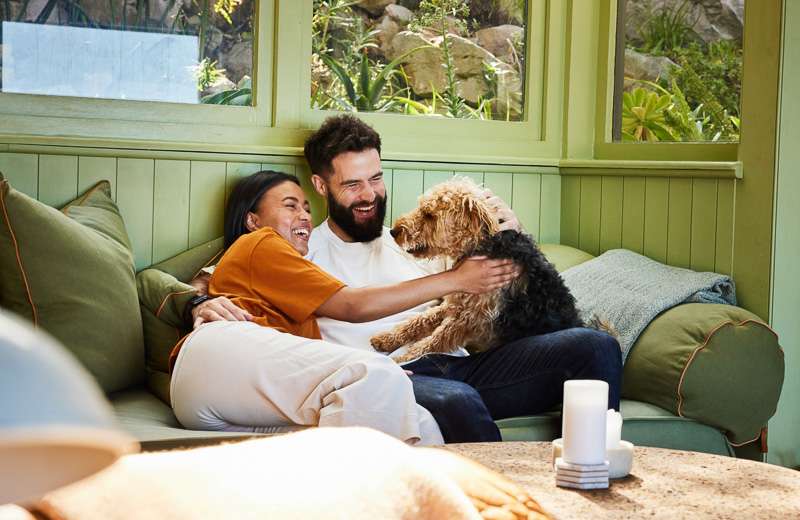
How to be an eco-friendly pet guardian
With more Kiwis looking to reduce their impact on the planet, it was only a matter of time before we looked at the animals with which we share our lives and homes.
Pets bring immense joy and companionship; however, just like us humans, they also contribute to carbon emissions, waste, and resource consumption. By making thoughtful choices, those of us who are pet guardians, or kaitiaki, can ensure our furry, feathered or scaly companions have a lighter footprint on Aotearoa’s unique environment.
One of the first steps toward sustainable pet ownership is adopting rather than buying. Animal shelters across the country, such as the SPCA, Dog Sanctuary Trust, Feline Friends, and HUHA, are full of animals looking for loving homes. Adopting reduces demand for commercial breeding and helps manage the stray and abandoned pet population, which can pose risks to native wildlife.
Feeding your pet sustainably is another key area.
Look for locally made pet food that uses responsibly sourced ingredients and minimal packaging. Brands that use fish certified by the Marine Stewardship Council (MSC) or offer recyclable or compostable packaging are better choices. The Petstock Group, along with Royal Canin and TerraCycle, has launched a free recycling program for selected pet food packaging. Christchurch collection points can be found at Petstock Ferrymead and Petstock Northwood. Tetra Pak pouches can also be recycled at stores like Animates.

Some pet guardians like to make homemade pet food with guidance from a vet, using local ingredients to reduce food miles.
Waste management is often overlooked but has a major impact. For dogs, use compostable poo bags rather than plastic. In some regions, there are dedicated dog waste composting systems or community composting schemes and Christchurch is about to get its first ever dog waste removal service, which is called Scoop n’ Go and can be found at scoopertroopers.co.nz. Launching this month, the first clean-up is free for the first 50 households to sign up.
For cats, opt for biodegradable litter made from recycled paper, wood, or corn instead of clay-based litters that are non-renewable and strip-mined.
Eco-conscious pet gear is another opportunity. Choose toys made from natural or recycled materials and avoid cheap plastic items that break easily and end up in landfills. Beds, collars, and leads made from sustainable fabrics like wool, hemp or recycled materials can be both stylish and environmentally friendly.
New Zealand’s native wildlife is especially vulnerable to domestic pets. At night, consider keeping cats indoors, use bells on collars, and consider building outdoor ‘catios’ to provide stimulation without risk to birds or lizards. Always keep dogs under control in conservation areas and on beaches, where ground-nesting birds may be present.
Finally, spaying or neutering pets not only reduces overpopulation but also lessens the strain on animal welfare services and the environment.
Top tips for eco-friendly pet guardians
- Adopt from shelters or rescue centres
- Choose locally made, ethically sourced pet food
- Use compostable poop bags and biodegradable cat litter
- Buy toys and gear made from natural or recycled materials, or preloved
- Choose beds and accessories made with sustainable fabrics
- Keep pets away from native wildlife and use collars with bells
- Leash dogs in sensitive natural areas
- Spay or neuter to prevent overpopulation
- Support New Zealand-made, eco-conscious pet brands.





